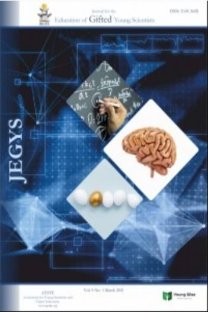Relationship between Curriculum and Instructional Materials of Non-formal Agricultural Higher Education
The research was to study the conditions of agricultural education of people and the relationship in the management model for non-formal agricultural education in Thailand. The data were collected via in-depth interviews structured with 56 respondents selected via purposive sampling. The results were most of respondents were female and the management model for agricultural education in curriculum and content, the most respondents showed the non-formal agricultural education without certain curriculum and course duration, including self-learning; teaching and learning showed the learning from the agriculture specialists and leaders in the community, obtained the knowledge from real practice; instructional materials showed the learning from real practice, friends’ suggestions and conversations; assessment and evaluation showed the evaluation from work’s outcome; The relationship of the curriculum and content with education and occupation, the instructional materials with education, the assessment and evaluation with education, the participation with education were statistically significance.00
Keywords:
Non-formal Agricultural,
___
- Nuangchalerm, P., & El Islami, R. A. Z. (2018b). Comparative study between Indonesian and Thai Novice Science Teacher Students in Content of Science. Journal for the Education of Gifted Young Scientists, 6(2), 23-29.Parmin, P, Nuangchalerm, P, & El Islami, Z. (2019). Exploring the Indigenous Knowledge of Java North Coast Community (Pantura) Using the Science Integrated Learning (SIL) Model for Science Content Development. Journal for the Education of Gifted Young Scientists, 7(1), 71-83. DOI: http://dx.doi.org/10.17478/jegys.466460.Lisa J. Q. & John A.S. (2016). Undressing Transformative Learning: The Roles of Instrumental and Communicative Learning in the Shift to Clothing Sustainability. Adult Education Quarterly, 66(3), 199-218.Lestari, F., Saryantono, B., Syazali, M., Saregar, A., Madiyo, M., Jauhariyah, D., & Umam, R. (2019). Cooperative Learning Application with the Method of Network Tree Concept Map: Based on Japanese Learning System Approach. Journal for the Education of Gifted Young Scientists, 7(1), 15-32. DOI: http://dx.doi.org/10.17478/jegys.471466.Bora J., Junghwan K. &, Lisa M. B. (2019). Informal Learning of Older Adults in Using Mobile Devices: A Review of the Literature. Adult Education Quarterly, 69(2), 120-141.Brendan, C. (2014). Affective Curriculum for Gifted Students in Malaysia: A Recommendation. Journal for the Education of Gifted Young Scientists, 6(2), 11-21.
- Başlangıç: 2013
- Yayıncı: Genç Bilge Yayıncılık
Sayıdaki Diğer Makaleler
Muhamad IMADUDDİN, Anggun ZUHAİDA, Fitria Fatichatul HİDAYAH
Hadarah HADARAH, Rapiah TULHIKMAH
La Ode AMALUDDİN, Rahmat RAHMAT, Surdin SURDİN, Muhammad İsa RAMADHAN, Andri Estining SEJATİ, Desi Nurul HİDAYAT, İ Gede PURWANA, Suritno FAYANTO
Chanarong WİSETSAT, Prasart NUANGCHALERM
Budiyono SAPUTRO, Andriani TRİ SUSİLOWATİ
Sri SUMARNİ, Rahmi RAMADHANİ, Yoppy SAZAKİ, Ruri Tria ASTİKA, Windi Dwi ANDİKA, Andika Eko PRASETİYO
Himawan PUTRANTA, Supahar SUPAHAR
Mardhiyyatin NAQİYAH, Dadan ROSANA, Sukardiyono -, Ernasari -
